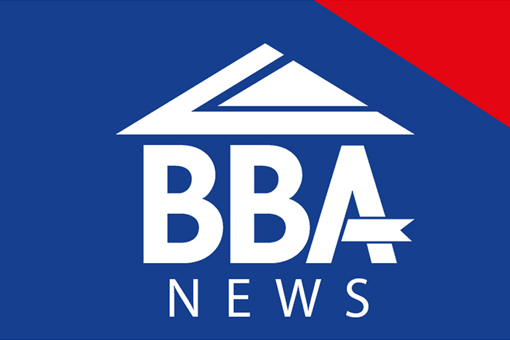Minimum Thickness of Membranes for use as Radon Barriers
In line with our policy of aligning Certificate wording with industry best practice, the BBA has introduced a new policy for the minimum thickness of membranes intended for use as radon barriers.
British Standard 8485: 2015 + A1: 2019 Code of practice for the design of protective measures for methane and carbon dioxide ground gases for new buildings, suggests that reinforced low density polyethylene membranes (LDPE) for use in gas control applications, should have a minimum ‘effective’ thickness of 0.4 mm i.e. not including the thickness of any reinforcing mesh. This is on the basis that such a product will be sufficiently strong to withstand the installation process and following trades until covered.
Following internal discussions at the BBA we have now reviewed our position on gas membranes and have decided to formally adopt the above thickness recommendation by the BS 8485 drafting panel as a minimum requirement for BBA certification of polyolefin membranes for use in gas control applications, including those certified for the control of radon gas.
The new requirement will apply to all new assessments and existing Certificates will be updated in line with this new policy by the end of September 2020
Share This Story, Choose Your Platform!
Related News
Minimum Thickness of Membranes for use as Radon Barriers
In line with our policy of aligning Certificate wording with industry best practice, the BBA has introduced a new policy for the minimum thickness of membranes intended for use as radon barriers.
British Standard 8485: 2015 + A1: 2019 Code of practice for the design of protective measures for methane and carbon dioxide ground gases for new buildings, suggests that reinforced low density polyethylene membranes (LDPE) for use in gas control applications, should have a minimum ‘effective’ thickness of 0.4 mm i.e. not including the thickness of any reinforcing mesh. This is on the basis that such a product will be sufficiently strong to withstand the installation process and following trades until covered.
Following internal discussions at the BBA we have now reviewed our position on gas membranes and have decided to formally adopt the above thickness recommendation by the BS 8485 drafting panel as a minimum requirement for BBA certification of polyolefin membranes for use in gas control applications, including those certified for the control of radon gas.
The new requirement will apply to all new assessments and existing Certificates will be updated in line with this new policy by the end of September 2020
Share This Story, Choose Your Platform!
Related News
Get in touch
Please complete the form below and we will contact you as soon as possible.
To help us to respond to your inquiry as quickly as possible, we have put a handy list of our services below.


